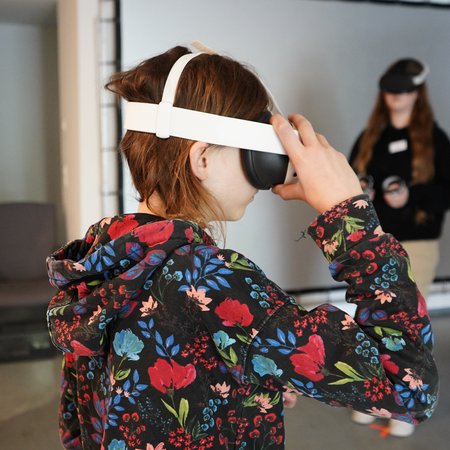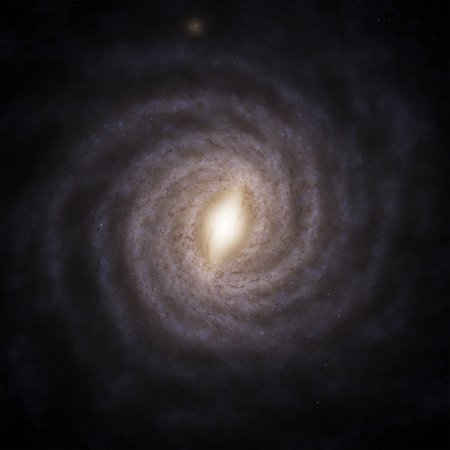Leibniz Graduate School for »Quantitative Spectroscopy in Astrophysics« starts
The Leibniz Institute for Astrophysics Potsdam (AIP) and the University of Potsdam jointly offer eight PhD stipends within the Graduate School focussing on »quantitative Spectroscopy in Astrophysics«.
Spectroscopy, i.e. separating the light into its colors, is the fundamental analytic method in astrophysics. This technique was decisively initiated and developed in the 19th and early 20th century in Potsdam, and it allows us today measuring astrophysical objects with high precision, starting from determining chemical abundances, over gauging the magnetic fields of the Sun and stars, to quantifying the mass of stars and entire galaxies.
Researchers from Potsdam were successful in securing 1.2 million Euros of external funding over a period of four years in this year’s competition of the Leibniz Association (WGL). Highly qualified graduate students have now the opportunity to apply for one of the eight PhD stipends. The PhD projects cover a broad spectrum with topics reaching from solar and stellar physics, to researching galaxies and the intergalactic medium, all the way to cosmology. Common to all projects is their methodological foundation in astronomical spectroscopy, so that, despite the wide range of topics, many connections and links foster collaborations among the participants of the Graduate School.
Leibniz Graduate Schools have an international scope and offer an optimal pathway to a swiftly graduation while gaining excellent academic qualifications. The PhD positions are embedded in a structured research and training program at the University, which includes supervision by committees, mentoring by peers, as well as dedicated colloquia and courses covering specific scientific topics and »soft skills«. The close collaboration between University and AIP provides the doctoral students with access to the latest telescopes, research instruments, and high-performance computing facilities.
Highlights of the Graduate School include
- Summer 2014: 12-week research stipends for Bachelor and Master Students in Potsdam, who will be supervised by the doctoral students of the Graduate School.
- 2015: 12-week internships at international research institutes and universities, where the doctoral students have the opportunity to work with leading experts in their field of research.
- 2016: Summer School for about 30 students, where the doctoral students will share their research results and experiences with other young scientists at the conclusion of the Graduate School.
The Leibniz Institute for Astrophysics Potsdam (AIP) and the University of Potsdam jointly offer eight PhD stipends within the Graduate School focussing on »quantitative Spectroscopy in Astrophysics«.
Spectroscopy, i.e. separating the light into its colors, is the fundamental analytic method in astrophysics. This technique was decisively initiated and developed in the 19th and early 20th century in Potsdam, and it allows us today measuring astrophysical objects with high precision, starting from determining chemical abundances, over gauging the magnetic fields of the Sun and stars, to quantifying the mass of stars and entire galaxies.
Researchers from Potsdam were successful in securing 1.2 million Euros of external funding over a period of four years in this year’s competition of the Leibniz Association (WGL). Highly qualified graduate students have now the opportunity to apply for one of the eight PhD stipends. The PhD projects cover a broad spectrum with topics reaching from solar and stellar physics, to researching galaxies and the intergalactic medium, all the way to cosmology. Common to all projects is their methodological foundation in astronomical spectroscopy, so that, despite the wide range of topics, many connections and links foster collaborations among the participants of the Graduate School.
Leibniz Graduate Schools have an international scope and offer an optimal pathway to a swiftly graduation while gaining excellent academic qualifications. The PhD positions are embedded in a structured research and training program at the University, which includes supervision by committees, mentoring by peers, as well as dedicated colloquia and courses covering specific scientific topics and »soft skills«. The close collaboration between University and AIP provides the doctoral students with access to the latest telescopes, research instruments, and high-performance computing facilities.
Highlights of the Graduate School include
- Summer 2014: 12-week research stipends for Bachelor and Master Students in Potsdam, who will be supervised by the doctoral students of the Graduate School.
- 2015: 12-week internships at international research institutes and universities, where the doctoral students have the opportunity to work with leading experts in their field of research.
- 2016: Summer School for about 30 students, where the doctoral students will share their research results and experiences with other young scientists at the conclusion of the Graduate School.
Images
New Leibniz Graduate School starts.





